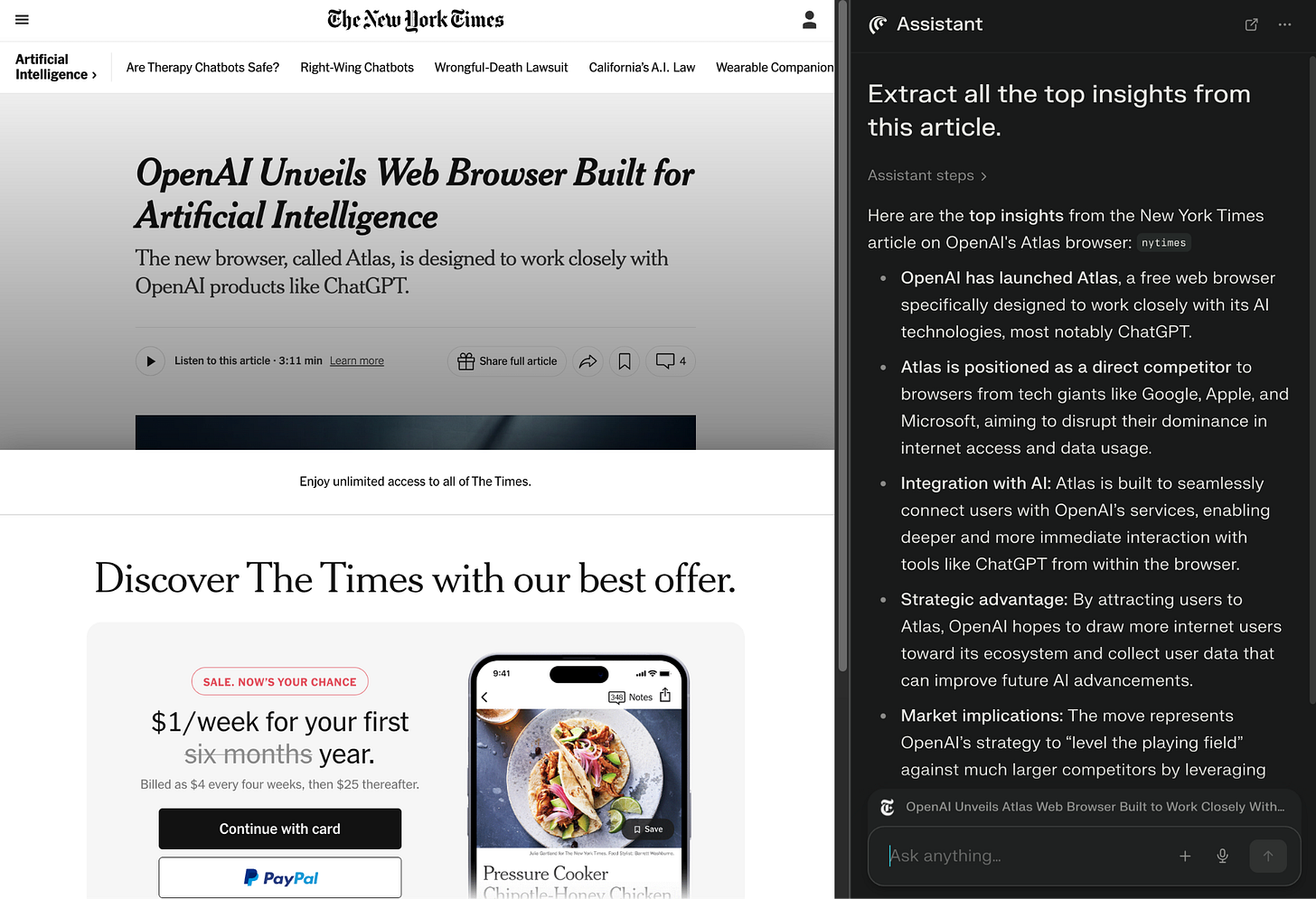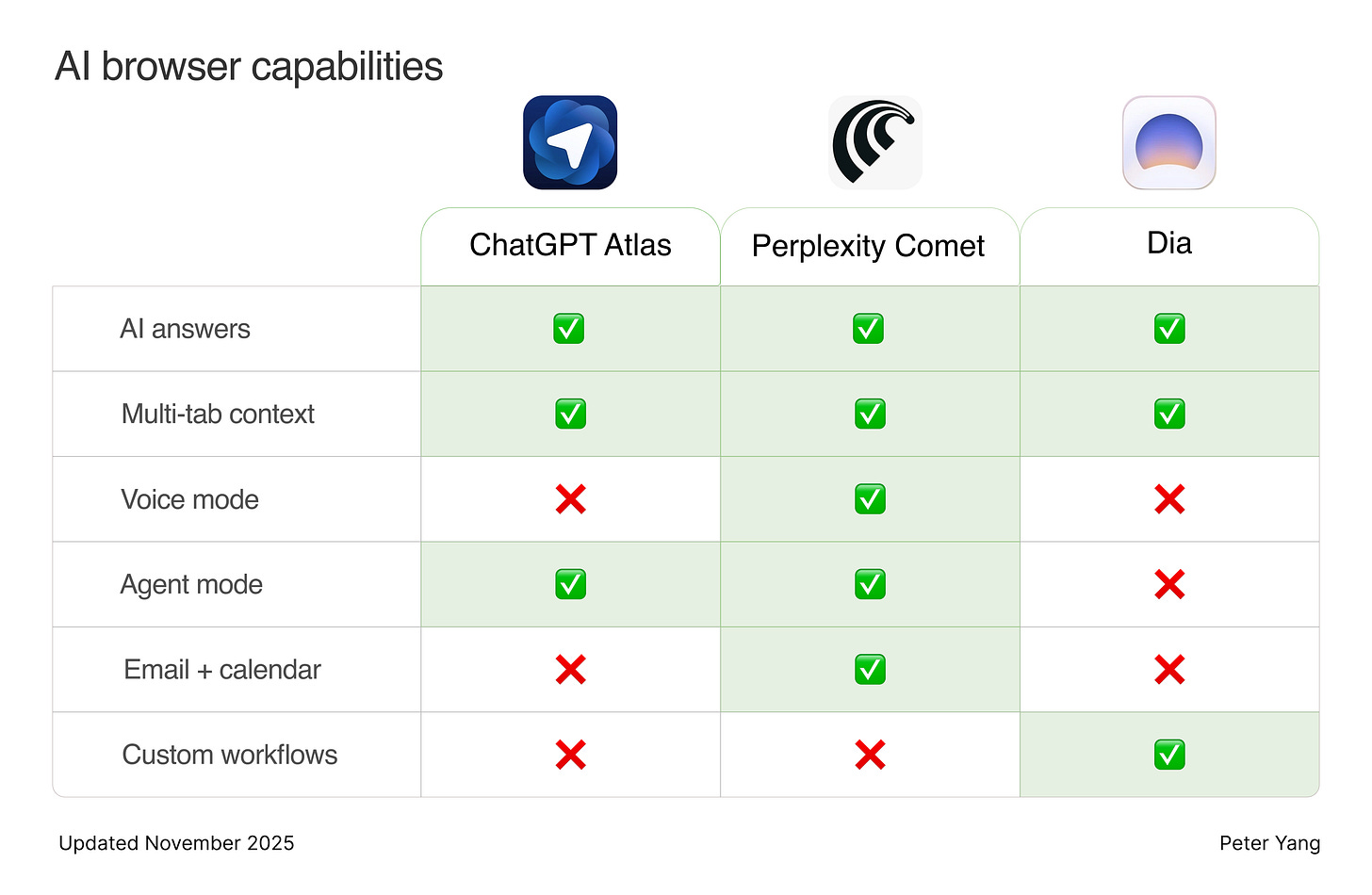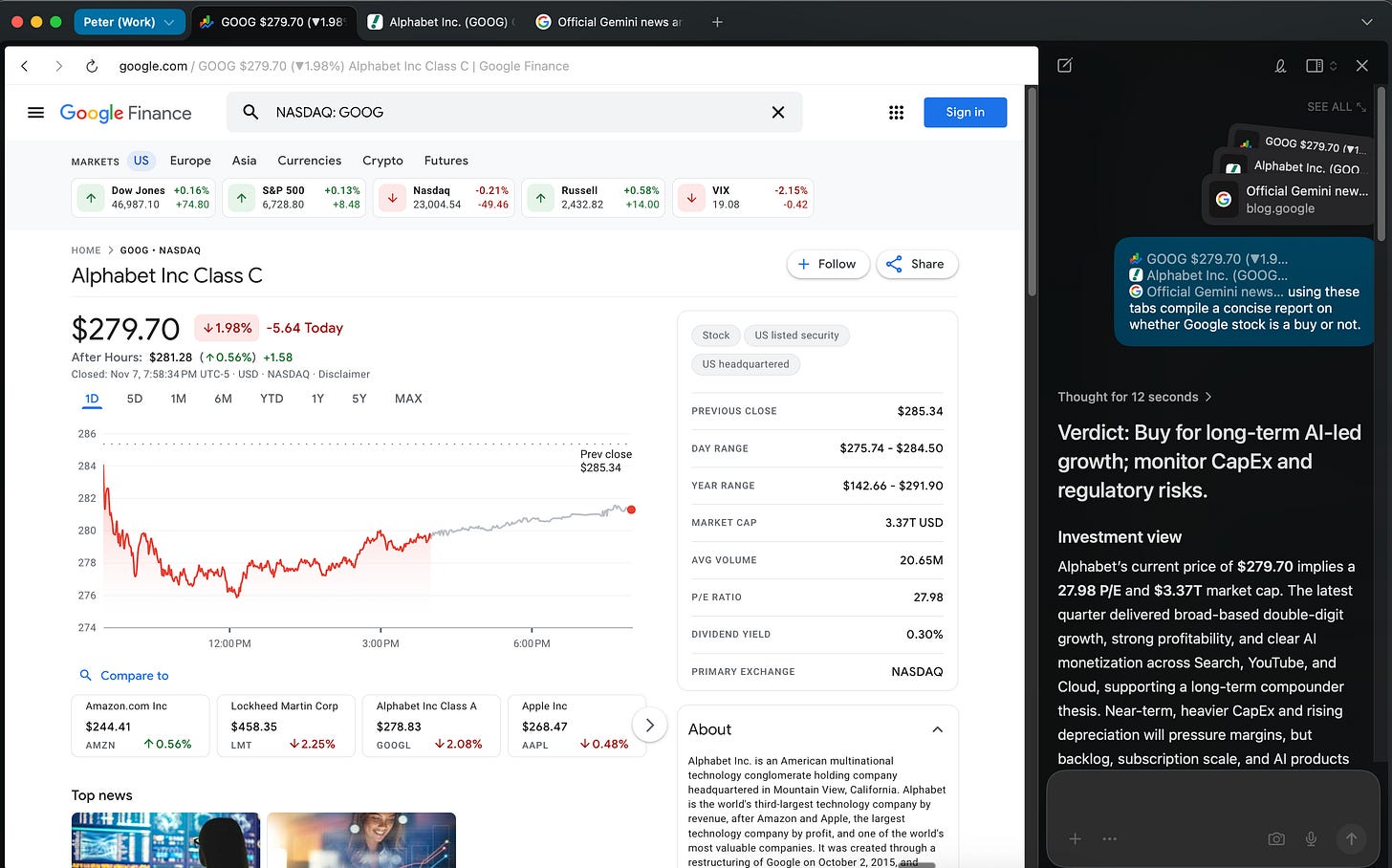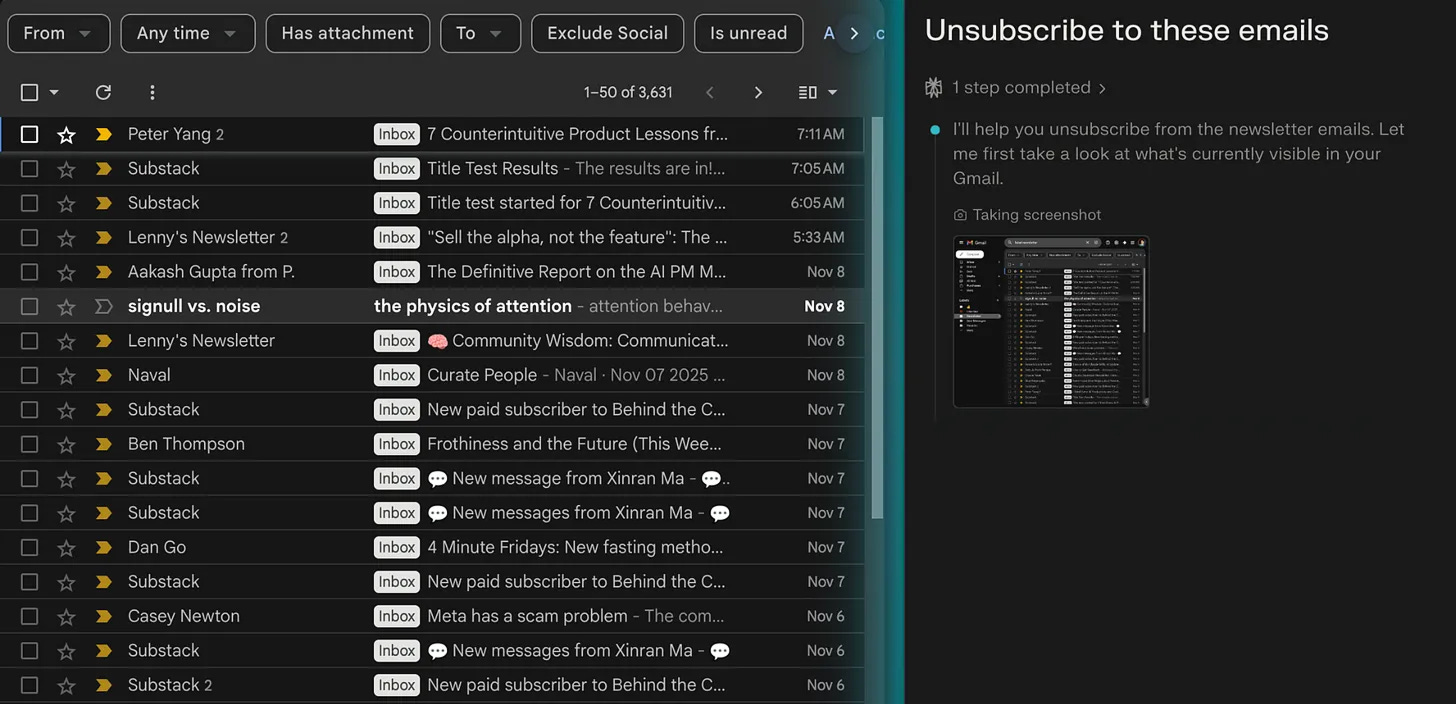Are AI Browsers Actually Useful or Overhyped? 6 Tasks Put to the Test
I put OpenAI Atlas, Perplexity Comet, and Dia through 6 real-world tasks to see if they're actually useful
Dear subscribers,
Today, I want to share my thoughts on whether AI browsers are worth the hype.
I tested OpenAI Atlas, Perplexity Comet, and Dia across 6 use cases including research, emails, shopping, YouTube, and more.
Watch my video tutorial now or keep reading to see if these browsers are worth it over Chrome.
Timestamps:
(00:00) OpenAI Atlas vs Comet vs Dia compared
(02:36) Task 1: Researching information
(03:59) Task 2: Summarizing across tabs
(06:29) Task 3: Managing emails with agents
(08:32) Task 4: Extracting YouTube summaries
(10:50) Task 5: Shopping and travel planning
(14:07) Task 6: Top 3 use cases from 100+ replies
(16:01) The critical security flaw in agent mode
(17:25) My honest verdict on AI browsers
This post is brought to you by…Composio
Most of the pain in shipping AI features comes from the integrations. You’re dealing with messy APIs, fragile tool calls, and hours debugging why something broke in Slack or Salesforce.
Composio gives you one SDK to connect 800+ apps like Slack, GitHub, Gmail, and Jira. They built Rube.app to plug these apps into an AI chat, so you can ask: “Pull the latest metrics and update Linear.” Instead of fighting APIs, focus on shipping faster.
OpenAI Atlas vs Perplexity Comet vs Dia
AI browsers embed an AI assistant that can:
See what you see in your open browser tabs.
Take action like navigate websites, click buttons, and fill forms (if you let it).
Here’s a comparison of the top 3 AI browsers:
OpenAI Atlas lets you use ChatGPT from the URL window, side bar, and by highlighting text. If you pay $20/month for Plus, it can also take actions for you in Agent Mode. Overall, Atlas feels like a MVP — there are no direct API integrations (e.g., Gmail, Calendar) or custom workflows.
Perplexity Comet is my preferred AI browser for two reasons. First, Perplexity search results just generate faster than ChatGPT. Second, it’s the only browser with direct API integrations with Gmail and Calendar plus features like tab organization and interactive voice mode.
Dia from Browser Company was acquired by Atlassian for $610M recently. One of its best features is skills that let you create custom AI automations (e.g., type “/fact-check” to get AI to check any article you’re reading). However, it lacks agent mode, which might not be a bad thing as I’ll explain later in this post.
My verdict: If I had to choose one, it’ll be Comet because Perplexity is optimized for searches and has the most features.
But let’s get real and test if these browsers are actually useful and safe versus Chrome.
Testing AI browsers across 6 practical use cases
I used Comet for most of these tests but the other AI browsers are similar:
1. Researching information

Here are a few research tasks I gave Comet:
“What’s the best AI browser and why?” It gave me a decent answer using Perplexity. But I could’ve gotten the exact same answer just by going to Perplexity.com.
“Summarize this article on AI browsers.” I asked it to summarize a New York Times article (see above) that was behind a paywall. It did pretty well at reading the text behind the banner.
My verdict: Somewhat useful to summarize a single webpage or to peek behind a paywall banner.
For other research tasks, I still prefer Google or Perplexity for quick searches and Deep Research if I want a deeper dive.
2. Summarizing across tabs
AI browsers can summarize info across all your browser tabs. Here are some example use cases:
“Based on my open tabs, do you think Google stock is a buy?” I asked this question to Dia after opening three tabs — Google Finance for Google stock data, Google’s latest earnings transcript, and the official Gemini blog. Dia took about 33 seconds to create a great investor report for Google’s stock.
“Based on my open tabs, write my weekly product update.” My friend Cemre is the PM for Dia. He uses the browser to summarize info across his analytics dashboard, Slack channel, and roadmap. It scans his tabs and then compiles everything into a product update.
My verdict: Pretty useful to avoid having to copy and paste information from multiple browser tabs into AI.
3. Managing emails
Now let’s test using Comet to help with my emails:
“Summarize the takeaways from all the emails from Ben Thompson.” It took a screenshot of my inbox to find emails from Ben’s Stratechery newsletter. Then, Comet started opening the emails and reading them one by one very slowly.
“Unsubscribe to these emails.” Next, I asked Comet to unsubscribe to Stratechery. It opened a Stratechery email, looked for the unsubscribe button, and clicked it. Again, this took forever but you could theoretically pre-filter to spammy emails and just walk away while it does its thing.
“Reply to this email.” I asked Comet to reply to an email and the draft felt too generic and AI-generated. Honestly, I would never trust an AI browser to reply to emails for me.
My verdict: Decent for unsubscribing to spammy emails especially if you pre-filter the list beforehand.
So far we’ve seen middling results, but this next use case AI browsers are genuinely great at.






